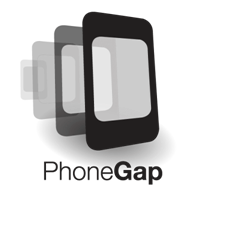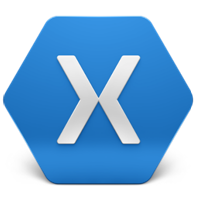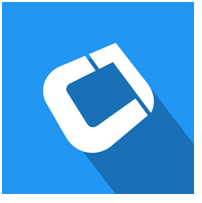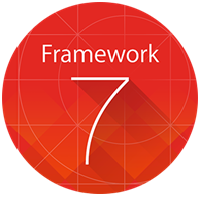6 FRAMEWORKS COMMONLY USED FOR BUILDING HYBRID MOBILE APPS
Ever since they came into the market, smart phones have been a rage and today App Development is considered to be one of the hottest business in the industry. Initially iOS, and then Android brought a swarm of applications to the market giving rise to competition.
The advent of new mobile operating systems like Windows and others created a threat to the Native Apps and Hybrid Development took the central position. With Hybrid App Development, the need for native App development has reduced. The developers are now creating flexible applications that do not require a code overhaul to make it compatible to a different OS. Hybrid coding is essential to get more reach and subscribers for your app.
A lot of hybrid development can be attributed to these frameworks that help the developers in creating a platform independent application:
1. Phone Gap

The Phone Gap framework is owned by Adobe System, which is mostly known for the stability and flexibility.It has established itself as one of the most preferred frameworks in multiple platform App Development as it requires only the knowledge of front end development languages like HTML, CSS and JavaScript. This is very convenient for developers, as they don’t need to learn additional languages. Even though the framework is different from native app, it has the same look and feel. This framework has a wide variety of plugins to choose from, giving developers enough room for modification. With the help of Phone Gap, the developers can create applications like GPS, Accelerometer, Compass, etc.
Preferred by: Web developers with knowledge of HTML, CSS and JavaScript.
Used in several App for: Wikipedia, Zynga
2. Xamarin

Xamarin is one of the easiest frameworks for App developers and most budget friendly for the owners of an App. There are unlimited features in this framework with easier access, easy modification, flexibility, etc. The free version of this framework has limited features, while the paid version has really great features.
Preferred by: Web developers who have knowledge of C#.
Used in App such as: Pinterest, Slack
3. Codename one

It is one of the latest and most advance frameworks in mobile App industry. It is the easiest framework language for developers, in which they can create multiple alternatives for any app. It has a massive download capacity transforming Java language into ready code.
It is a framework mostly used by Java developers, but it can also be used by those who don’t have a knowledge of Java. Since, it is a Java based App it has a limited functionality as compared to Android and other language based Apps. It can be used to transform an App, which is made into iOS into Android based app.
Preferred by: Web developers who have knowledge of coding in Java.
Used in App such as: Raffler, iList
4. Framework 7

It is an Open Source HTML framework for developing the mobile based Apps. These web based Apps mostly have a native feel just like iOS or Android. It uses a prototyping tool that produces a working app prototype as soon as possible, when requested. This framework is great for iOS and Android based apps, but not for any other platform.
Preferred by: Web developers who have knowledge of HTML, JavaScript and CS.
Used in App such as: tipBru, Gestamed.
5. JQuery Mobile

This web framework has a mass popularity among App developer. It is a form of open-source network mostly used in all the platforms, that is, apps made on jQuery mobile are accessible on tablet, desktop and several other devices. jQuery mobile creates web based responsive applications, hence be it any platform, device or OS, its applications will run in all of them.
Preferred by: Web developers who have knowledge of JavaScript.
Used in App such as: Untapped, Goba
6. Ionic

Another popular Open Source framework for Hybrid App Development. Coders can create minimalistic and progressive app using native components and build on AngularJS model. It offers a cross platform support and high speed employiong a single code base, but has the look and feel of a native App.
Preferred by: Web developers who have knowledge of HTML, CSS and JS.
Used in App such as: ChefSteps, Sworkit
